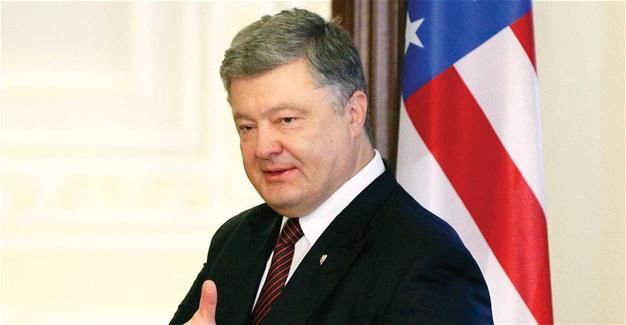Ukrainian president calls for global response to Russian threat
DAVOS, Switzerland

Ukrainian President Petro Poroshenko called for a worldwide effort to counter the threat of Russian cyber warfare and urged the United States to “be great again” by demonstrating leadership on issues such as global security.
U.S. President-elect Donald Trump’s pledge to improve ties with the Kremlin and open admiration for Russian President Vladimir Putin has put Ukraine, whose Crimea region was annexed by Russia in 2014, under the spotlight.
Poroshenko played down speculation that Washington could backtrack on its support for Kiev, noting that Trump had said publicly he would stick to U.S. obligations and there had been “promising” statements by nominees to his cabinet.
“That gives us a lot more optimism for the future,” Poroshenko told Reuters on the sidelines of the World Economic Forum in Davos on Jan. 18, adding he already had a visit planned to meet the new U.S. president “in a few months.”
Poroshenko said joint global efforts were needed to halt Russian aggression, both military and cyber:
“There is a global cyber war of Russia against [the] whole world, there is lots of evidence. This is a global danger and the world should be together to fight this danger.”
Meanwhile, the leaders of Germany, France and Russia agreed on Jan. 18 to continue working toward a peaceful resolution of the conflict in eastern Ukraine under four-way peace talks that include Kiev, a spokesman for German Chancellor Angela Merkel said.
Merkel, French President Francois Hollande and Russian President Vladimir Putin discussed the situation in eastern Ukraine and further steps in the Minsk peace process during a conference call, spokesman Steffen Seibert said in a statement.
“The leaders agreed that Germany, France, Russia and Ukraine will continue to look for a peaceful solution to the conflict in the Normandy Format,” he said.
“That includes the stabilization of the continued fragile ceasefire, implementation of open legal questions, and the exchange of prisoners included in the Minsk agreement.”
 Ukrainian President Petro Poroshenko called for a worldwide effort to counter the threat of Russian cyber warfare and urged the United States to “be great again” by demonstrating leadership on issues such as global security.
Ukrainian President Petro Poroshenko called for a worldwide effort to counter the threat of Russian cyber warfare and urged the United States to “be great again” by demonstrating leadership on issues such as global security.